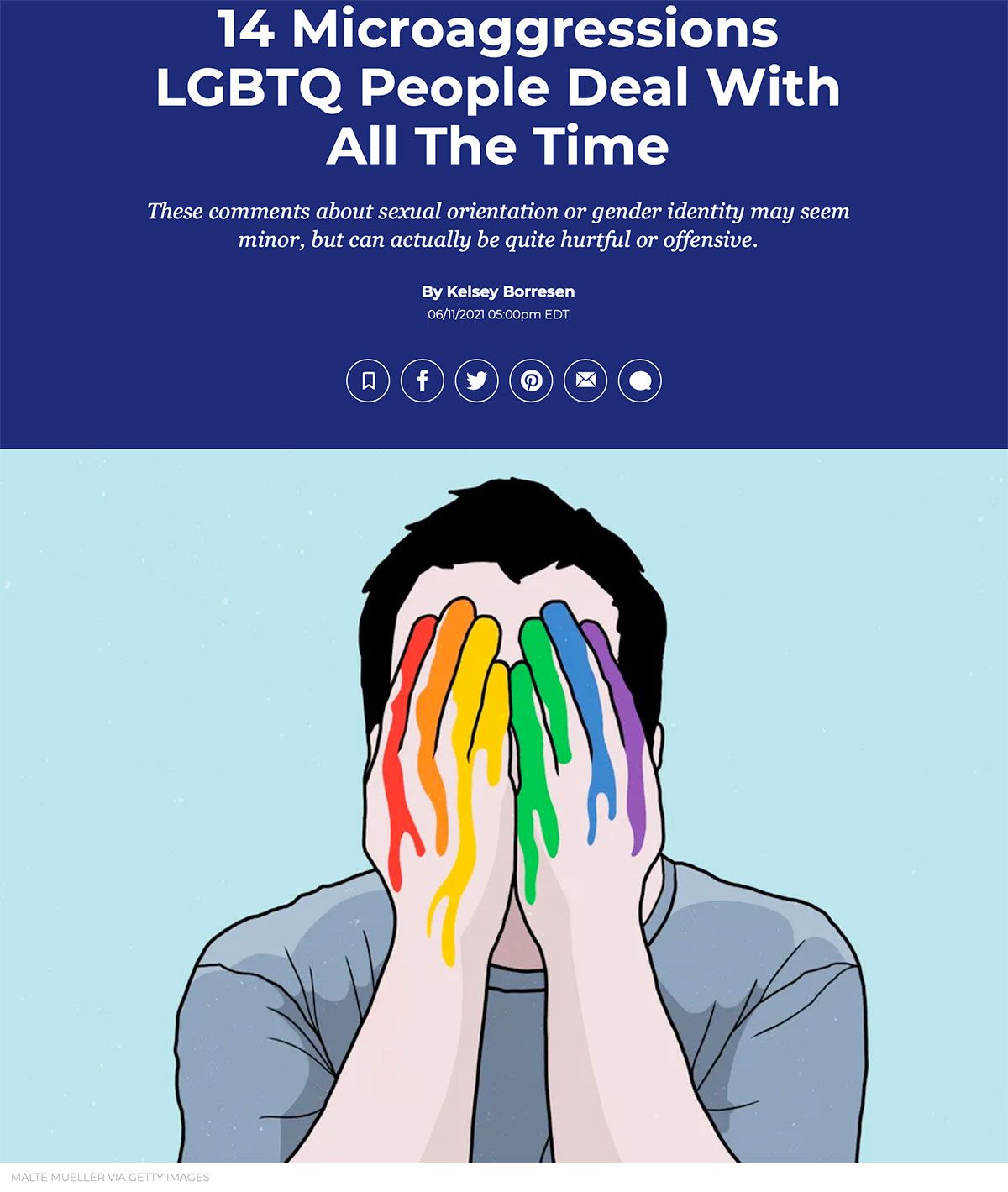14 Microaggressions LGBTQ People Deal With All The Time

If I step on your toe, even if it was unintentional, it still hurts. This is a key point as we consider the challenge of microaggressions. Intention is only part of the story, and it’s not the most important part – impact is where we need to look.
“When you’re an LGBTQ person living in a heteronormative,
cisnormative world, encounters of subtle discrimination, known as
microaggressions, are a frustrating yet often unavoidable part of daily
life.”
The article, “14 Microaggressions” does an excellent job of laying
this out: “On their face, microaggressions may appear harmless or
trivial. People, especially those with privilege, might think these
seemingly innocuous comments should be easy to ignore. But over time,
these kinds of interactions can do considerable damage. Research has
found a link between people who experience microaggressions and mental
health issues such as depression, anxiety and trauma, as well as
physical health issues like high blood pressure.”
The article quotes Sebastian Lopez Calvo, a therapist at Kip Therapy
in New York City, who likened the cumulative effect of microaggressions
to a bruise that someone keeps bumping into over and over again. “It
hurts whether they meant to do it or not,” he said. “Over time, that
bruise may get bigger from being bumped so much and it won’t end up
healing. In the same way, what would otherwise be singular slights
become overwhelming when compounded with each recurrence.”
Kelsey Borresen, the author, then explores how to respond to a
microaggression. This is exactly what our latest e-Learning course is
designed to teach. Disarming Microaggressions is the result of our
collaboration with Dr. Derald Wing Sue, one of the leading experts in
microaggressions. You can learn more and Test Drive the course HERE.
“LGBTQ people are often
pathologized in overt and covert ways,” Kevin Nadal — a professor of
psychology at the John Jay College of Criminal Justice and author of
“That’s So Gay! Microaggressions and the Lesbian, Gay, Bisexual, and
Transgender Community” — told HuffPost.
These comments about sexual orientation or gender identity may seem minor, but can actually be quite hurtful or offensive.
I’ll list some of the 14 microaggressions here, but read the article and consider if you’ve heard statements like these, or said them yourself.
- Assuming one partner is the “man” and the other is the “woman” in queer relationships.
- Referring to being LGBTQ as a “choice” or “lifestyle.”
- Asking invasive questions about someone’s body like, “What parts do you have down there?”
- Telling someone that they don’t “look non-binary.”
- Expecting a gay person to have a certain personality or interests based on stereotypes.
- Asking a trans person when they’re having “the surgery.”
- Assuming a queer person can’t relate to straight people.
Read the next 7 most common microaggressions LGBTQ people deal with by reading the article HERE.

